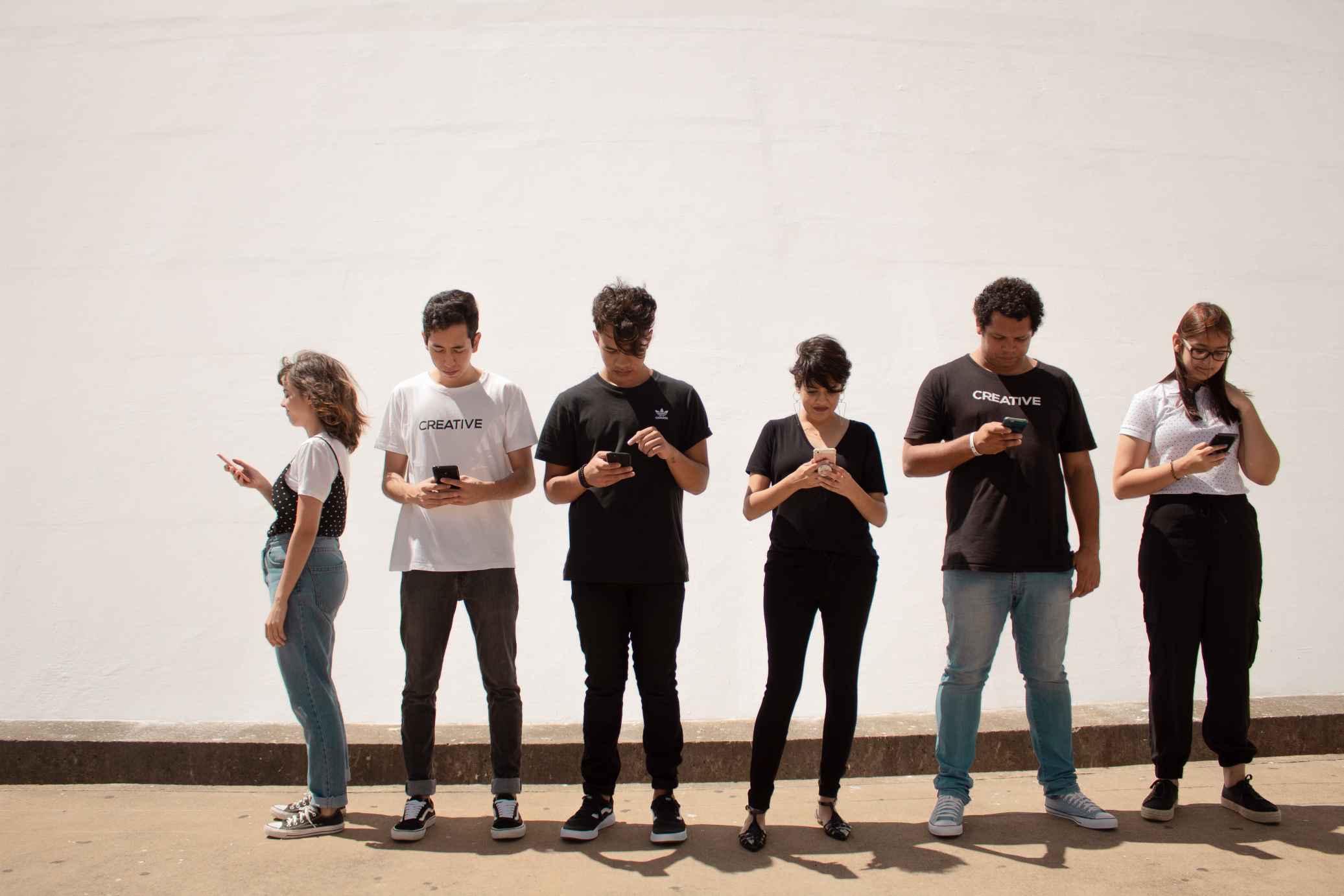
Ever feel like your social media scroll might be affecting more than just your screen time? The digital world, while seemingly infinite, isn’t without its shadows.
Have you ever found yourself questioning your worth after comparing your life to someone’s highlight reel? It’s a familiar struggle.

In this article, we’ll explore and go through the complexities of mental health challenges amplified by it. Also, will delve into the positive and negative impact on your mind.
Table of Contents
The Positive Influence of Social Media on Mental Health
While social media often gets a bad rap for its negative impact on mental health, it’s essential to acknowledge the positive influence. One notable aspect is the sense of community it fosters.
These platforms provide spaces for individuals facing similar challenges, from mental wellness struggles to niche hobbies, to connect and support one another. These digital communities offer a virtual sanctuary, breaking down geographical barriers.
It serves as a valuable tool for mental health awareness and education. Users share personal stories, coping mechanisms, and resources, contributing to a more informed and empathetic society. Normalizing discussions around it reduces stigma, encouraging open dialogues and understanding.
Also Read: How to earn money online as a student
Negative Impacts of Social Media on Mental Health
One significant issue is the potential for comparison. Platforms often portray idealized versions of reality, fostering feelings of inadequacy and low self-esteem among users. The constant quest for validation through likes and comments can lead to a harmful cycle of seeking external approval for self-worth.
A notable instance highlighting the darker side of social media is certain mental health lawsuits. Platforms like Instagram are hugely popular these days, where one can be influenced easily.
Comparisons are bound to happen as well. It has led to legal action like the Instagram mental health lawsuit, underscoring the platform’s alleged role in promoting a toxic environment. These contribute to the deterioration of users’ psychological wellness.
According to TorHoerman Law, the lawsuit points to concerns that Instagram’s algorithm amplifies content that may be harmful. It especially affects younger users, impacting their body image and mental well-being. It’s crucial to be aware of these challenges and advocate for a healthier online environment that prioritizes the well-being of its users.
Understanding Social Media’s Role in Mental Wellness
Social media is a tool, neither inherently good nor bad, but a reflection of how we engage with it. It can amplify existing emotions, both positive and negative. For some, it is a source of inspiration, connection, and support, fostering a sense of belonging in digital communities. For others, it can magnify loneliness, inadequacy, and stress.
Awareness of your online habits is crucial. Mindful consumption involves recognizing when social media enhances your well-being and when it detracts from it. Setting boundaries, such as designated screen-free times or curating a feed that uplifts rather than undermines. It empowers individuals to reclaim control over their digital experience.
Cyberbullying and Its Psychological Effects
Unlike traditional bullying, its digital counterpart transcends physical boundaries, infiltrating the sanctuary of one’s online presence. The psychological toll of cyberbullying can be severe, encompassing heightened levels of stress, anxiety, and depression. Victims often grapple with feelings of isolation and humiliation as the attacks unfold in a public digital arena.
What to do in such cases is the question many have. According to Nemours Children’s Health, reporting cyberbullying to a trusted adult is crucial, even though victims may feel hesitant or ashamed. Taking action is essential as bullying can escalate, and reporting anonymous bullies can aid in their identification by the police.
Report objectionable information or phony accounts to social media sites as these concerns are taken seriously. Notifying abusive messages or emails to telephone companies or email services is critical. Use your device’s settings to block bullies online, and ask for assistance if necessary.
Culture of Comparison and Its Impact on Self-Esteem
The rise of social media has birthed a pervasive culture of comparison, weaving itself into the fabric of your daily lives. The constant exposure to meticulously curated snapshots of others’ achievements and happiness fuels a relentless comparison cycle. This phenomenon, often called the “comparison culture,” can exact a toll on self-esteem and mental well-being.
As users scroll through polished depictions of seemingly perfect lives, a subtle but powerful undercurrent of inadequacy takes root. The pressure to measure up to idealized standards set by online peers can erode self-esteem, leaving individuals grappling with feelings of unworthiness.
The Child Mind Institute advises modeling a healthy attitude to failure to assist teenagers in avoiding the traps of comparison culture. The significance of communicating the ideas is that failure is normal and that it is essential to be honest about it. Parents shouldn’t hide their mistakes since this might make teenagers think achievement is the only thing that matters.
Rather, they should show how to accept failure as a necessary part of learning and model a graceful way to deal with setbacks. Parents may help their teenagers develop resilience by telling them that failing is not a reason for shame. They should be taught that it is okay to get back and to try again.
Balancing Digital Engagement for Mental Wellness
It’s essential to recognize the dual nature of these platforms—they can be sources of both positive connection and negative stress. Intentionality in digital consumption is key. Setting boundaries, such as allocating specific timeframes for social media use and being mindful of content consumption. It empowers individuals to maintain a healthier relationship with these platforms.
The importance of genuine connections offline should not be underestimated. While social media offers a virtual space for interaction, nurturing relationships in the real world is equally vital for overall well-being. Striking a balance between the digital and physical worlds ensures a more holistic and fulfilling life.
Strategies for Promoting Mental Wellness Online
Curating one’s online environment plays a pivotal role. Actively selecting content that promotes positivity, inspiration, and inclusivity contributes to a healthier digital experience. Unfollowing accounts that evoke negative emotions and creating a feed that aligns with personal values can be empowering.
There is plenty that parents can do to support their children’s mental health as well. Parents are advised by Seattle Children’s to inquire about their child’s well-being and living circumstances. In addition to listening to what they say, they should watch for any behavioral changes.
Recognizing that sometimes all that child wants is to feel heard and appreciated, they might not just want solutions at that moment. They could also ask the youngster to brainstorm coping mechanisms for when they begin to feel afraid, depressed, or angry. Letting children take the initiative is a good step as kids develop coping mechanisms that suit them.
Also Read: How SMS Reception through Virtual Numbers is Boosting User Privacy?
Conclusion
The comparison culture and cyberbullying cast shadows, yet positive connections and awareness efforts shine a light. Striking a balance and curating your online spaces empowers you. Remember, social media is a tool, and how you wield it is what matters.
By fostering intentional engagement, setting boundaries, and nurturing genuine connections, one can transform these platforms into allies for mental wellness.





